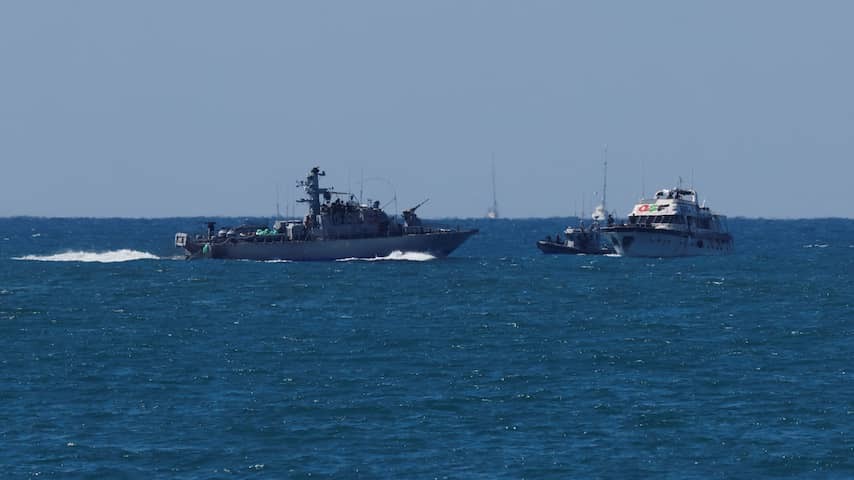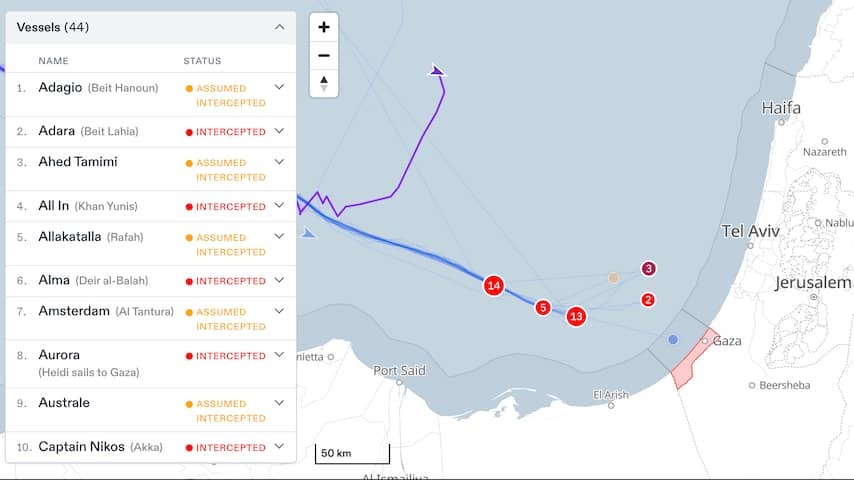
With the interception of boxes of ships off the coast of gaza, Israel Has maneuvered itself into a legally Difficult position. Accordance to Many Legal Experts, The Country is acting in Violation of Maritime Law. Yet, for Israel, this is likely to have few consequences.
About Five Hundred Activists, Politicians, and Lawyers Departed from Barcelona at the End of August for the Gaza Strip. The Global Sumud Flotilla (GSF) Grew Along The Way As Ships from Other Countries Joined It. With 44 Ships, The GSF is the Largest Aid Flotilla Ever to Brave the Journey to Gaza.
After a Journey of Approximately One Month, The Fleet Approached The Waters Off The Coast of Gaza This Week. On Wednesday, Israeli Naval Vessels Intercepted the Ships a Few boxes miles from the Gazan Coast. Passengers, Including Dutch Activists, Were Detained. None of the Ships Reached the Gaza Strip.
The Question of Whether Israel is Allowed to Intercept The Flotilla is not easy to Answer. Countries have jurisdiction over the sea up to a distance of 12 nautical miles (Approximately 22 kilometers) from Their Coast. Everything Beyond that is, in principle, Regarded AS International Waters, Where the Right to Freedom of Navigation Applies. Most of the ships were in international waters when they were intercepted.
However, Israel Invokes A Naval Blockade That It Announced in 2007, Shortly After Hamas TOK Power in the Gaza Strip. Such A Blockade Can Be Imposed by A Country At War To Prevent The Opposing Party From Arming Itelf via The Sea, According to Maritime Law Experts Fred Sones and Marten Zwanenburg, Speaking To Nu.nl. Israel Claims That This Naval Blockade Gives It The Right To Stop Ships Heading Towards Gaza.
Naval Blockade is Unlawful Accordance to Most Legal Experts
The Legality of That Blockade Has Been A Subject of Debate Among Legal Experts for Years. “There are prominent legal experts who defend the blockade, but the majority believe that it is not allowed,” Says Zwanenburg. Accordance to the law of war, a naval blockade can only be declared in a conflict with another state. Hamas is a non-state actor.
MoreOover, the law of war States that a Naval Blockade is no longer justifiable if it also leads to the prevention of food and other resources necessary for the survival of the population. Zwanenburg: “There are QUITE A FEW Legal Experts Who Say That the Blockade Contributes to the Starvation of the Population.”
Therefore, Question Marks Can Be Placed on the Legality of the Naval Blockade. But even if you agree with this, the Israeli Interception was Unlawful, States Soons. “On the High Seas, You Cannot Simply Detain Ships Flying A Foreign Flag,” He says. At Most, Israel Could Have Searched the Ships for Weapons and Ammunition. “But if none are found, they must let the ships go again.”
Soons Emphasizes That The Flotilla is a Peaceful, Symbolic Protest Action. The Organizers Aim to Break the Blockade – which They As Unlawful – And Provide Emergency Aid to the Palestinians. But they probably knew themelves that this would not succeed. The Flotilla is Therefore Primarily A Symbolic Action, Soons Thinks. “They had no weapons and a limited amount of aid with them, to escape the suspicion of helping Hamas.”

Israel is in A Legally Difficult Position
Israel is not hiding the fact that it is not at all waiting for the flotilla. The Israeli Ministry of Foreign Affairs Said Earlier That the “Only Goal” of the Fleet is to Provoke and Constantly Called the Fleet the Hamas Sumud Flotilla.
At the Same Time, The Government is in A Difficult Position, Says Soons. “I can imagine that Israel simply does not because boxes of ships to lie off the beach of gaza.” There is still a war raging there. If a rocket goes off and ends up on the fleet, Israel is in an equal worse situation.
Therefore, it is QUITE Understandable That Israel Intercepted the Ships at Some Distance from the Coast, Says Soons. But by Dismantling a Political Protest in International Waters, The Country is Actually Automatically on Legally Thin Ice.
‘Flotilla Got What It Wanted: International Attention’
Yet, Soons and Zwanenburg do not Expect Legal CONSEQUESCES for Israel. “I have the impression that Israel is doing what would be wise by using no or at least as little violence as possible killing the interception,” Says Zwanenburg.
Israel announced that the activists are “safe and in good health.” They are being brought to Israel to be deported to European Countries Afterwards.
In The Past, Dismantling Aid Flotillas Got horrible out of hand. The first aid flotilla that tried to break the gaza blockade was violently repelled by Israel. Ten Activists were killed, which led to a wave of international criticism.
“Israel Will Have Learned from That,” Says Soons. Moreover, The Israeli Navy Encountered Violent Resistance from the Occupants at the Time. It will not go that far this time, he expects. “They (The Activists, ed.) Have basically Achieved what they wanted: International Attention.”